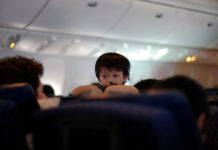I have always loved learning languages. However, my four-year-old daughter (our only child) has an expressive language delay and tested in the first percentile on a state evaluation. She has been getting speech therapy for the past year and a half, but she is still very far behind other kids her age in that a lot of what she says remains unintelligible. (Her hearing and intelligence are normal.)
Next year she will be starting kindergarten. Should we go with an elementary school that offers a foreign language to all children? Or should we skip that and wait until she is older, given that she is having so much trouble with her first language?
Thanks!
Eve
Dear Eve,
First of all, I don’t think you should base your choice of school on whether they offer a foreign language to all children or not. It doesn’t matter whether she starts to learn a foreign language at 5, 8, 12 or whatever.
What matters most is that you choose a school where she will be happy and be able to progress at her own speed, and where staff and children will be understanding of the language delay. She will continue to need help and support with speech and with literacy. It seems to me that in those countries with which I am familiar, some schools do that better than others.
If you do decide that the best school for her is one that offers a foreign language to everyone then she should do what the other children do and have that experience. She may find it hard, but the other children will also be finding it hard. Everyone will be struggling in the new language. Working on a new language is a good way of working with language, and could support what the speech-language therapist does with her. Expressive language delay is a problem with language as a whole, not a problem with English specifically, so all work on language will be beneficial.
If you think that the best school for your daughter—all things considered—is the one that teaches a foreign language to all children, then do it.
Dr. Gupta


































